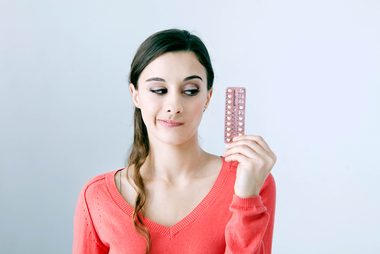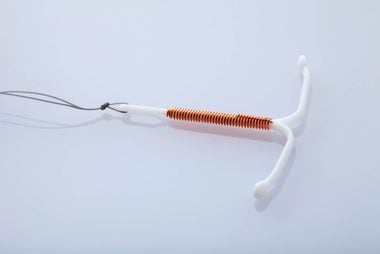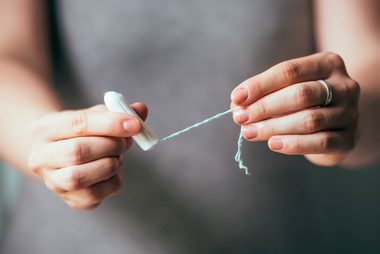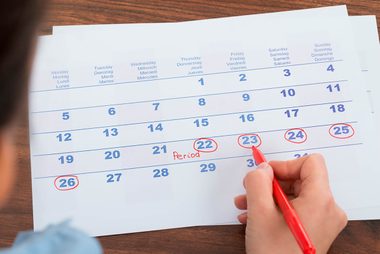
Saying goodbye to periods
Stopping your period, also known as period suppression, is a matter of personal choice. Dr. Kathryn Wright, an ob-gyn with Facey Medical Group, says this is not to be confused with those who don’t have periods on their own. “Suppressing your period with hormonal contraception prevents the growth of the lining of the uterus, preventing the need to shed, and often suppresses ovulation, removing the signal to shed. Not having periods without the use of hormones indicates a hormonal imbalance, which results in continued growth of the lining of the uterus, which can result in heavy bleeding, anemia, and even uterine cancer,” she says.
Here are some facts to help you make your decision about stopping your period altogether.

Is stopping your period even possible?
Periods can be suppressed with any form of continuous birth control—but you should always talk to your doctor before changing your routine, says Wright.
While every woman’s body reacts differently, using any kind of combined hormonal birth control continuously will usually suppress menstruation. Birth control patches, pills, and vaginal rings will all stop your period if you use them every day without a break. Skipping the placebo (sugar pills) in a birth control pack will take away the time that you aren’t using the hormone. The hormone injection Depo Provera and the hormonal IUD (Mirena) may also suppress menstruation. Depo Provera, Seasonique, and Mirena IUDs are marked for extended use, but Wright says you can use any birth control pill that is not triphasic for continuous birth control.

The truth about natural periods
Although you may think that it’s natural to have a period every month when using birth control, when you stop taking the birth control pill for seven days, it’s called a hormone-withdrawal bleed. This bleeding is different from a normal period and merely simulates what happens at the end of a regular menstrual cycle when estrogen and progesterone levels drop.
Meanwhile, when you take contraception continuously, you’re maintaining steady levels of those hormones. So when you use birth control continuously, you’re suppressing withdrawal bleeding, not a natural period.

The history of monthly periods
According to Dr. Roger Pierson, director of research in obstetrics and gynecology at the University of Saskatchewan, “If we go back a couple of thousand years, women were typically in some sort of a sexual relationship from the time they started having periods until they reached menopause.” With no contraception available, women were usually pregnant or lactating. For this reason, Pierson estimates that they may have only menstruated about five or six time in their lives.
“It was when we had efficient contraception that we got the idea that regular menstrual periods are normal. So to have someone declare that you need a regular menstrual period to be healthy, that’s just not the case,” he says.

What we know about period suppression
According to the ACOG’s guidelines on continuous and extended use of hormonal contraception, taking the pill to suppress your period for a short period of time is as safe as using it in a 21-day cycle.
“The skeptics seem to believe that, because a period is “natural,” not having a period is ‘unnatural,'” said Wright. “However, by that logic, using an epidural in childbirth is not natural and nor is anesthesia during surgery. Modern medicine has given us many avenues to reduce human pain and suffering. The truth is there is no research that shows that period suppression is harmful in any way.”
The American Congress of Obstetricians and Gynecologists (ACOG) does not have any guidelines specifically on period suppression, but they don’t have any restrictions on its extended use either. They do state, however, that it is not physiologically necessary to have a period.
If you’re thinking about going off of your birth control, there are some other factors to consider. Either way, be sure to consult your doctor before undergoing any major hormonal changes.